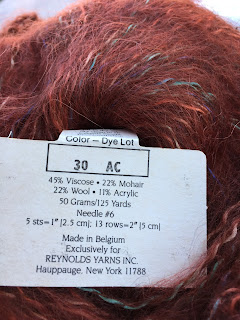Sometimes, my brain goes into overload--I love the history of fabric--
how did it happen? When did it happen? Who was the person to come
up with the warp and weft of weaving? Most don't stop to think--
just how did we get from zero to here?
When I do demos on weaving or spinning, I remind folks that
all our fabric came from a single thread! Yes, a single thread became
a towel, a sheet, a piece of clothing, yes, even your underwear!
But, in ancient times, how were those clothing items woven?
Here is one of the most primitive ways you could make a loom-
a rock weighted loom! Fascinating isn't it!!?
book written and researched by Hildur Hákonardóttir, Elizabeth Johnston and Marta Kløve Juuhl
They worked for six years to contribute to this interdisciplinary book about the North Atlantic Cultural Heritage, represented by the Warp-Weighted Loom.
The result is a story in three parts; the Loom History in Iceland, Shetland and Norway; an exceptional Practical Handbook which also shows the strong connection between science and good practical handicraft, and the textile findings from prehistoric and historic times.
Main text is in English and important recipes also in Icelandic and Norwegian.
research into this weaving technique and maybe one of the first looms used.
Reading their experiment makes me very happy that others have tried this method
and we now have fancy easy to use looms!
The warp-weighted loom is a simple and ancient form of loom in which the warp yarns hang freely from a bar supported by upright poles which can be placed at a convenient slant against a wall. Bundles of warp threads are tied to hanging weights called loom weights which keep the threads taut.[1] Evidence of the warp-weighted loom appears in the Neolithic period in central Europe. It is depicted in artifacts of Bronze Age Greece and was common throughout Europe, remaining in use in Scandinavia into modern times. Loom weights from the Bronze Age were excavated in Miletos, Greece.[2]




















